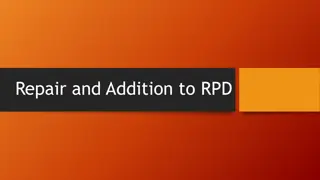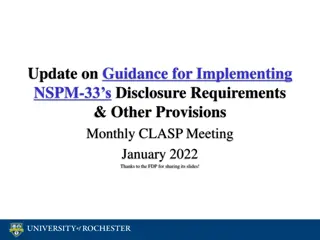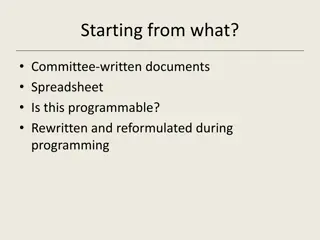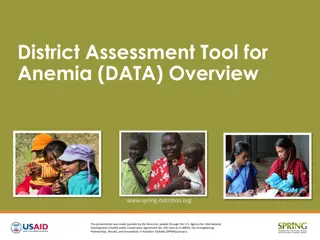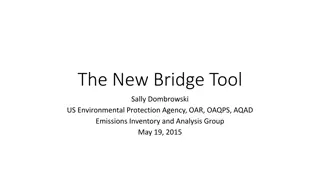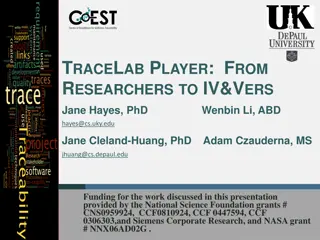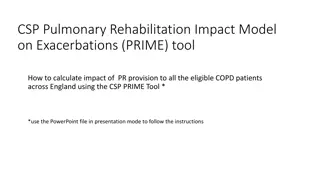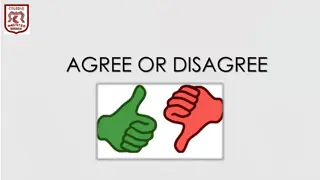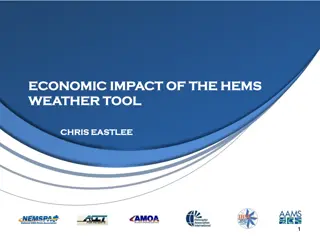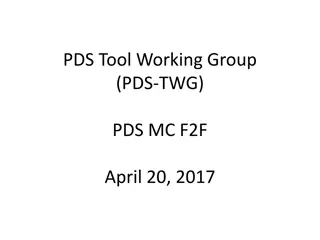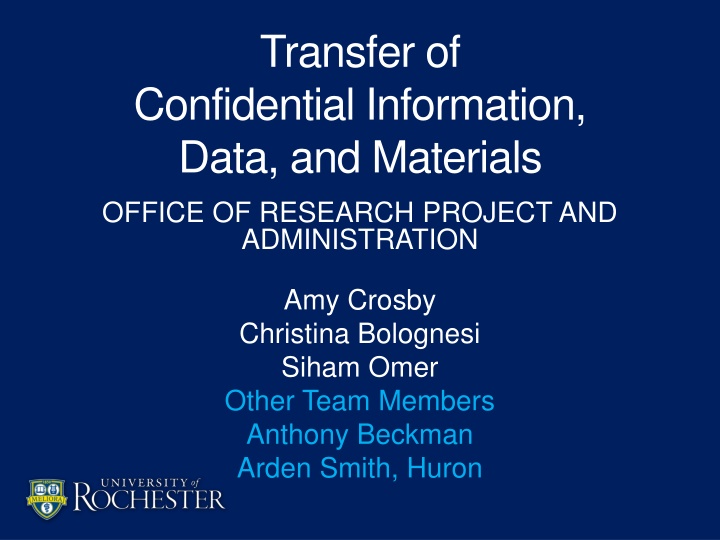
Confidentiality Agreements and Data Transfer Processes
Learn about different types of agreements like CDAs, NDAs, DUAs, and MTAs negotiated by administrators in research projects. Explore the process for obtaining fully executed agreements and reasons for using CDAs and DUAs. Discover the importance of material transfer agreements in sharing sensitive data and materials.
Download Presentation

Please find below an Image/Link to download the presentation.
The content on the website is provided AS IS for your information and personal use only. It may not be sold, licensed, or shared on other websites without obtaining consent from the author. If you encounter any issues during the download, it is possible that the publisher has removed the file from their server.
You are allowed to download the files provided on this website for personal or commercial use, subject to the condition that they are used lawfully. All files are the property of their respective owners.
The content on the website is provided AS IS for your information and personal use only. It may not be sold, licensed, or shared on other websites without obtaining consent from the author.
E N D
Presentation Transcript
Transfer of Confidential Information, Data, and Materials OFFICE OF RESEARCH PROJECT AND ADMINISTRATION Amy Crosby Christina Bolognesi Siham Omer Other Team Members Anthony Beckman Arden Smith, Huron
Types of Agreements Negotiated by Agreements Administrators CDAs / NDAs (Confidentiality / Non-Disclosure Agreements) DUAs and DTAs (Data Use/Transfer Agreements) *** MTAs (Material Transfer Agreements) *** ***May include Data Registries, Consortium, or Biobank Agreements
Process for obtaining a fully - executed CDA, DUA, or MTA Department Creates New Agreement Agreements Admin Assigned Draft / Review / Revise Negotiate the Terms of Agreement Fully executed Agreement Transfer of info / material / data
CDAs / NDAs A Confidential Disclosure Agreement / Non- Disclosure Agreement is an agreement under which one or both parties agree to maintain confidentiality regarding proprietary information that one party receives from the other party.
Reasons for a CDA Clinical Trial A company may wish to share information for the purpose of determining whether an academic institution might be interested in establishing a clinical trial to test the company s drug / biologic / device. Research Collaboration: A company, academic institution or non-profit may wish to discuss a possible research collaboration that would involve sharing intellectual property of one or both institutions.
DUA A data use agreement is a contract that is used to define the terms and conditions upon which data is shared between organizations. Things to consider: HIPAA FERPA Intellectual Property GDPR EU countries
Reason for DUA Used when sharing proprietary or sensitive data, to control the use of the data 1. Proprietary data: research results, intellectual property 2. Sensitive data: Human Subject Data i.e. protected health information (PHI) ***Required under HIPAA ***It is always best practices to have a DUA when sharing data.
MTAs A material transfer agreement is a contract used to define the terms and conditions for the sharing of research materials. An MTA sets forth rights to use the materials and defines the rights to the intellectual property that results from the material use.
Reasons Material Providers Put an MTA in Place To Protect Proprietary and/or Confidential Materials Restrict Use, to a specific PI or Project Hazardous Material / Special Regulations Potential Liability Obtain rights to the results of the research for which the material or information is to be used Ensure correct and appropriate acknowledgement is included in any publication regarding the use of the material
Should there be an MTA when receiving materials? Sometimes materials are provided without an MTA Can be an issue if: PI wishes to share the same material with another internal OR external collaborator PI moves to another institution and wishes to take the material with them ***It is always best practice to have a MTA when sharing materials.
Think TWICE Before Sharing MICE * Mice use and distribution may be restricted by an MTA (material transfer agreement) to a specific PI and/or research project. This may prohibit internal sharing without permission of Provider. Contact the Agreements Team if you have questions.
Friendly Reminders 1. PIs are not authorized signatories on Agreements. 2. All CDAs, DUAs, MTAs require entry in IORA for review , negotiation and signature by ORPA. 3. It is always Best Practice to get an agreement before sharing Confidential Information, Data, or Materials. 4. If your PI received the Confidential Information, Data, or Materials from an outside source it always best to check the agreement before sharing with others. 5. While only those questions marked with an * are required the more information you provide upfront the less questions we ask and the faster your agreement can be processed. 6. If you have questions the Agreements team is here to help.
The Agreements Team has departmental assignments just like your ORPA Research Administrators https://www.rochester.edu/orpa/_assets/pdf/ orpa_MTADeptList.pdf Please keep in mind just like your ORPA RAs this list is subject to change as our staff changes. If your department is not listed, please contact anyone on the team for assistance.
Thanks! Questions?





